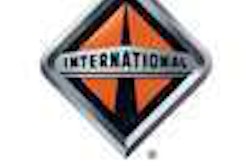Waste Management (WM), North America’s largest waste management company, has announced it is field-testing the first prototype parallel hydraulic hybrid truck to be deployed in a waste collection vehicle. Four parallel hydraulic hybrid-diesel collection trucks have been incorporated into WM’s fleet and are being tested in Fort Worth, Texas, to study and optimize the hybrid system’s efficiency and reliability. WM says the system is the first among many technologies it expects to test and implement over the coming years.
Hybrid vehicles hold great promise for the waste industry because collection vehicles have many cycles of braking and acceleration along a given route. The four Peterbilt 320 vehicles in Fort Worth use a Hydraulic Launch Assist (HLA) system that was developed by Eaton Corp. to capture and store energy during braking, which not only improves efficiency but reduces wear on break pads. The stored energy then is transferred to accelerate the vehicle to the next pickup location, reducing fuel consumption and wear on the engine.
Though hybrid technologies have been deployed successfully in automobiles and light trucks, Class 8 vocational vehicles – a category that includes waste trucks – pose additional challenges to hybrid engine design. Among the largest vehicles on the road, Class 8 vehicles require a robust drivetrain that can handle heavy loads, and have multiple systems – for compaction and lifting – that draw power from the engine, complicating hybrid design.
“We are working closely with a number of manufacturers to develop and test both hydraulic and electric hybrid systems for our fleet vehicles,” says Eric Woods, WM vice president of fleet and logistics. “The challenge for our engineering team is to make our vehicles as efficient as possible while also ensuring they are tough enough to withstand wear and tear on the road. Though development is in early stages, we are optimistic that the investment we are making now will lead to a reduction in greenhouse gases and ultimately benefit both manufacturers and users of heavy vocational vehicles.”
WM operates one the largest commercial fleets, with annual fleet expenditures of up to $500 million. By creating demand for efficient vehicles, and supporting CAFE standards for heavy vehicles, WM says it is encouraging technologies that will have broad benefits.
“Peterbilt is a leader in developing solutions that provide greater fuels savings and reduced emissions through superior aerodynamic designs and advanced hybrid technologies,” says Bill Jackson, Peterbilt general manager and Paccar vice president. “We applaud Waste Management efforts to test and implement advanced hybrid technologies, including the Peterbilt Model 320HLA, and expect this will help Waste Management achieve its 2020 emissions and fuel savings goals.”
This project is part of WM’s sustainability initiative announced last year. The company has a goal to increase the fuel efficiency of its fleet by 15 percent and reduce fleet emissions by 15 percent by 2020. WM also is testing a number of measures to achieve this goal: in addition to working with truck and engine manufacturers to test hybrid systems, the company is continuing to make its routes and fleets more efficient. Also, WM says it has been a pioneer in the waste industry in the use of liquefied natural gas (LNG) and compressed natural gas (CNG) as an alternative fuel for its fleet and evaluating a wide range of technologies that could create fuel for vehicles from landfill gas, such as liquefied natural gas and synthetic diesel.
“We look forward to partnering with Waste Management as they take this important next step in field testing,” says Ruppert Russoniello, vice president and general manager of Eaton’s hydraulics business. “Waste collection vehicles present a huge opportunity for the environmental benefits created by Eaton’s hydraulic hybrid technology.”









